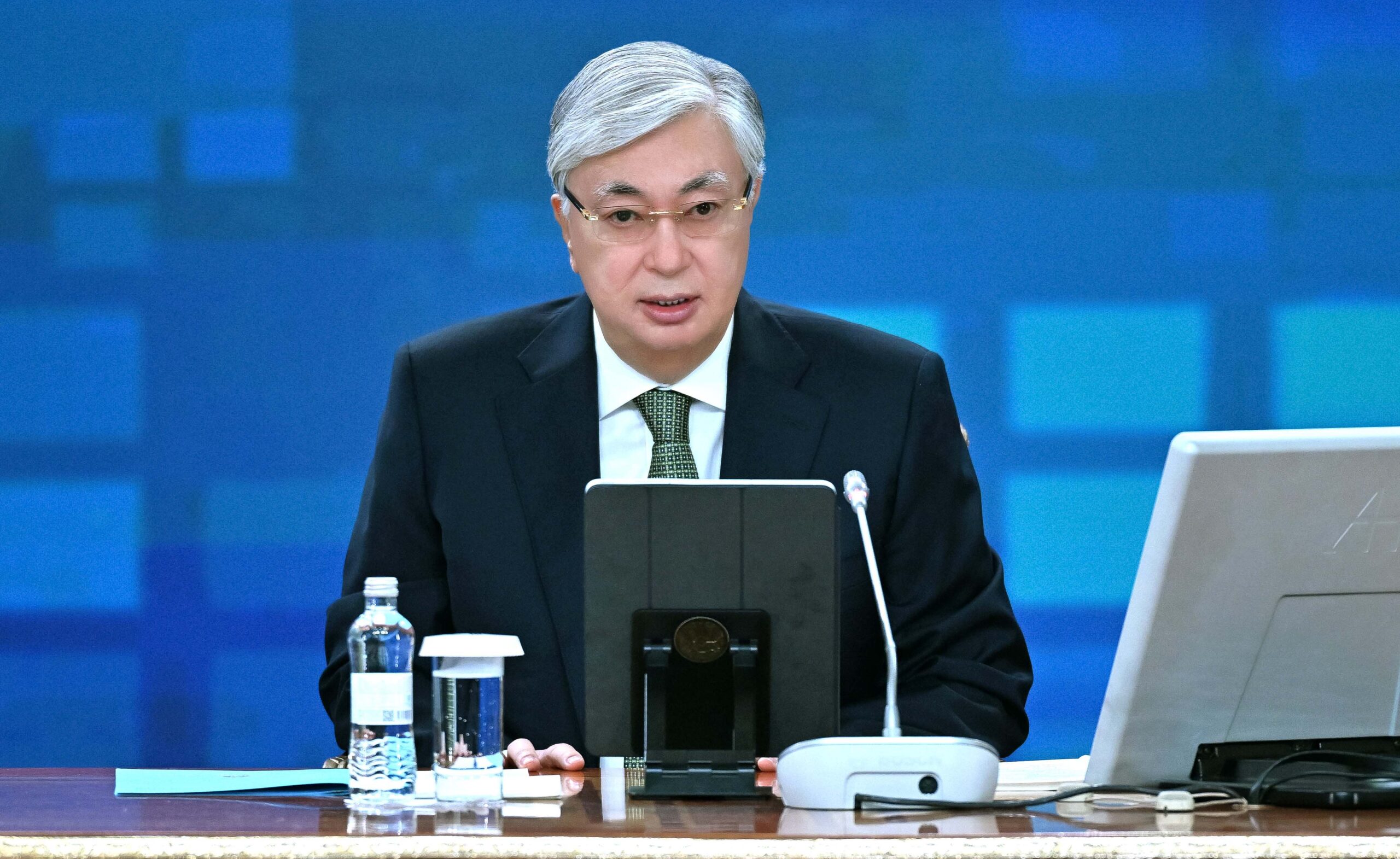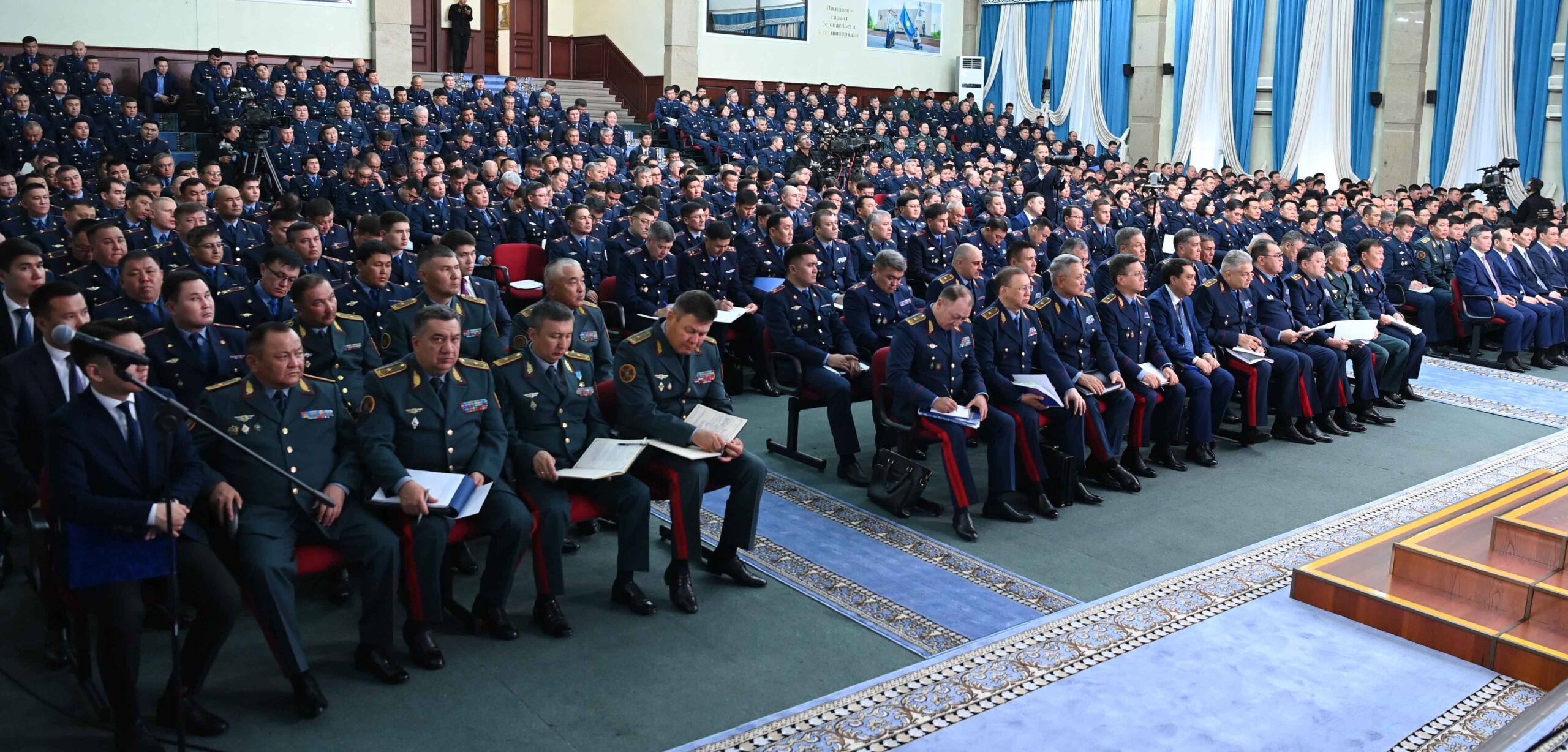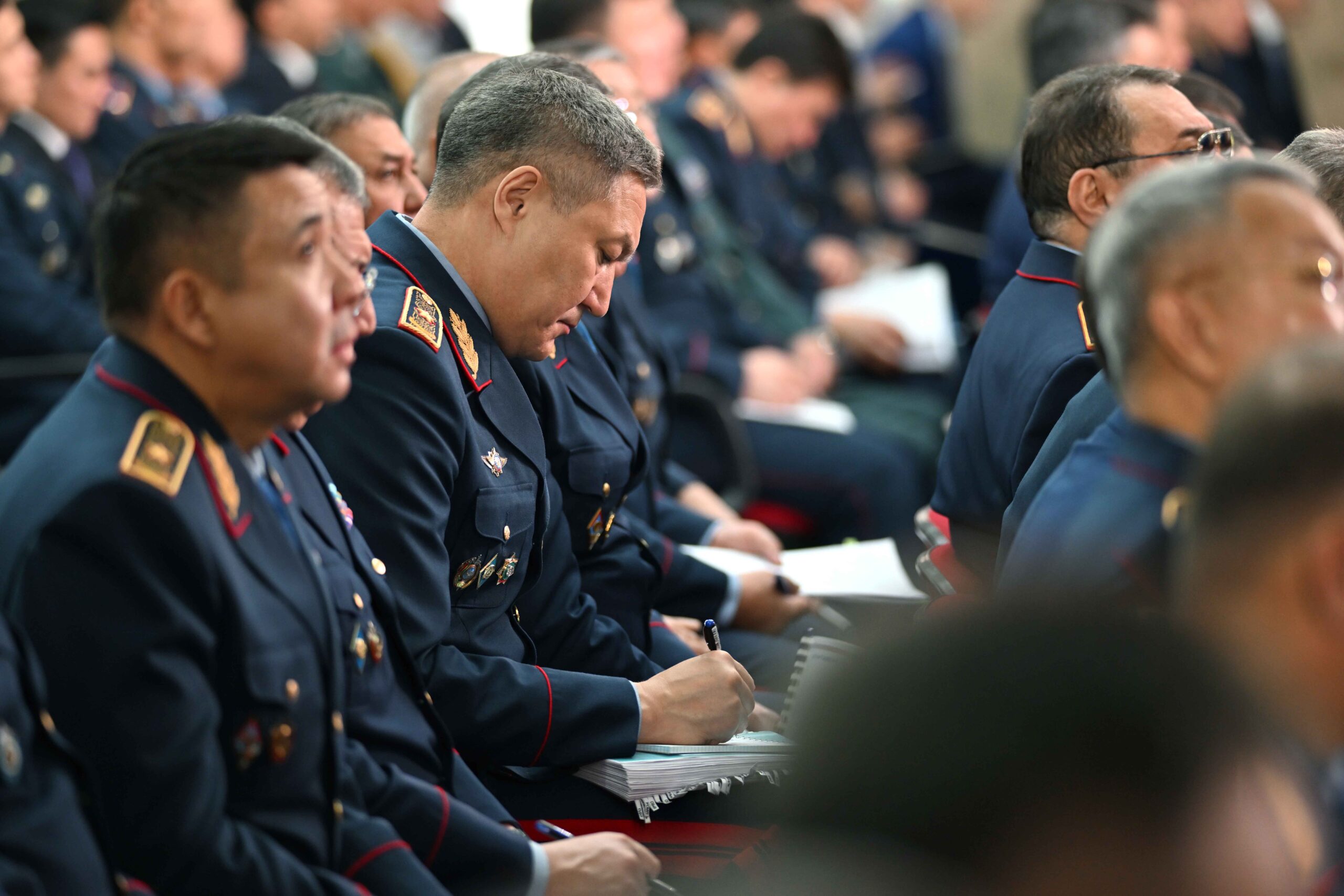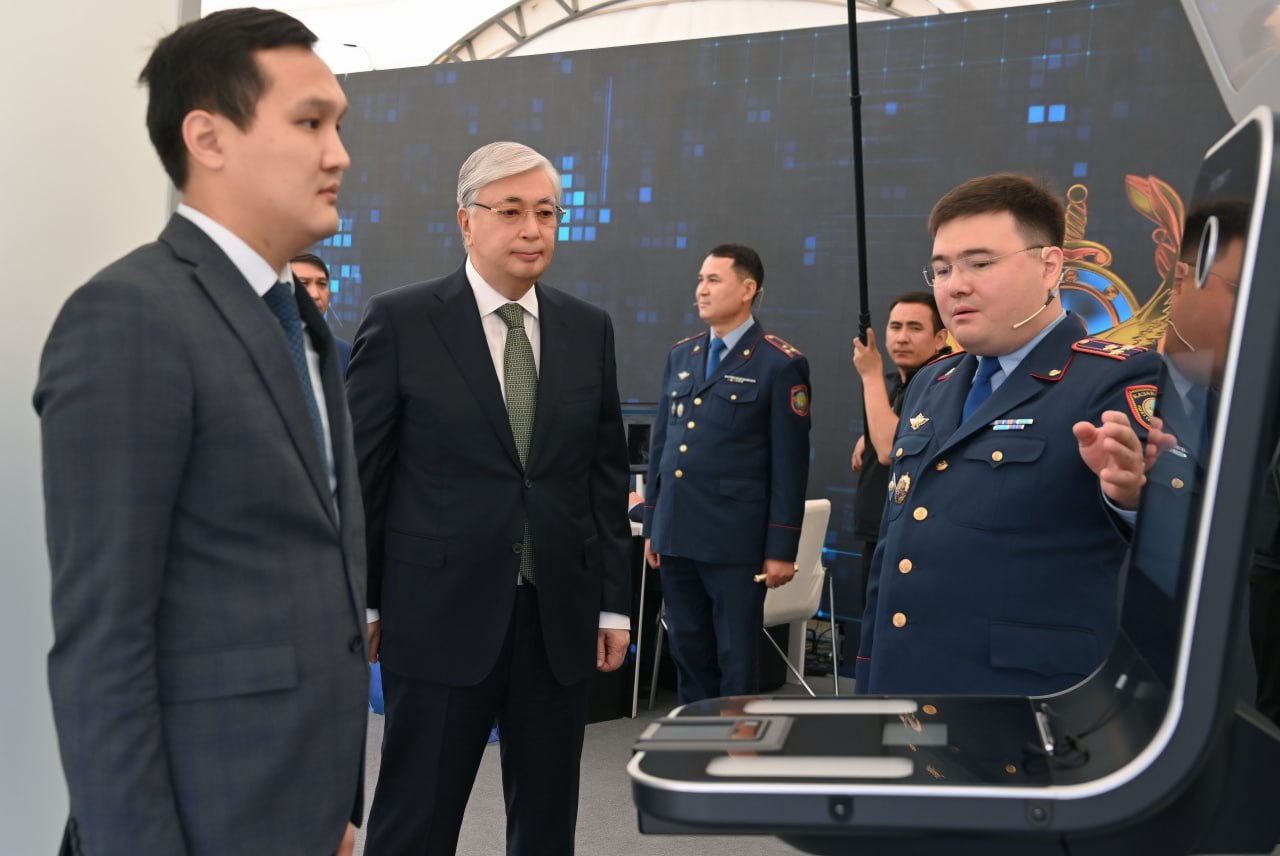ASTANA – President Kassym-Jomart Tokayev highlighted key issues facing the country’s law enforcement agencies as he chaired an expanded meeting of the Ministry of Internal Affairs on June 30, reported the Akorda press service.

Kassym-Jomart Tokayev chairs an expanded meeting of the collegium of the Ministry of Internal Affairs. Photo credit: Akorda.
The President emphasized that the ministry’s most important task is to protect public order and combat crime. Improving the work of the internal affairs bodies should be a priority to make the police a respected profession in society, he said.
“Law enforcement is a very challenging job, often having to work both day and night. There are risks and threats in your work. You are on guard round the clock, which requires the highest dedication and endurance,” said Tokayev.
Kazakhstan is introducing a service police model whose key priorities include preventing crime and delinquency, ensuring accessibility, increased responsiveness, the use of digital technologies, and close cooperation with the public.
“Our citizens do not need formal reports, they need tangible changes in your work and concrete results. That is the point of the service model,” he said.

Tokayev stressed the huge responsibility of law enforcement officers to the public. Photo credit: Akorda
Tokayev instructed to step up digitalization for the transparent work of police officers and increased efficiency.
He highlighted that the ministry should undertake strict measures against fraudulent companies whose illegal actions cause damage to citizens’ well-being, mental health, and the country’s reputation. Mentioning a case of a travel agency that deceived a group of law-abiding citizens heading to Hajj in Saudi Arabia, the President said the Ministry of Foreign Affairs should provide comprehensive assistance to victims.
The President also spoke about legal illiteracy, suggesting that senior police officials should visit schools and universities to explain to the younger generation the need to follow the laws and the consequences of their violation.
“I always say that the rule of law must prevail in the country. Only then will there be order in society. Police officers must communicate this simple truth to citizens, especially young people,” he said.
The commission for the reform of the law enforcement system prepared a draft law to optimize criminal procedure legislation, relieving inquirers and investigators from redundant procedures and excessive paperwork.
“The bill was drawn up, first and foremost, for citizens. Getting rid of unnecessary bureaucracy will save your time and effort so that you can focus on real solutions to people’s pressing problems,” Tokayev noted.

Improving road safety is another key issue highlighted by Tokayev, Photo credit: Akorda
The President stressed that domestic violence remains a key problem. He brought up grim statistics that indicate 300 people were killed in domestic violence in the past two and a half years. Some 878 offenses causing serious harm and 808 causing medium harm to health were recorded, along with more than 37,000 persons brought to administrative responsibility.
“To address this situation, comprehensive preventive work is necessary. Here, the main role is assigned to neighborhood police inspectors. Practice shows that if timely measures are taken, most of the crimes committed on the basis of family and domestic conflicts can be avoided, which means saving someone’s life and health,” said the President.
Tokayev named drug trafficking as another serious problem that needs to be urgently addressed by law enforcement agencies.
The President reiterated the strict observance of law and order, saying that police officers must treat law-abiding citizens with respect and not succumb to provocations. At the same time, citizens must respect law enforcement officers.

One of the initiatives presented to Tokayev was the project that allows a citizen to self-document, thereby reducing paperwork. The main feature is face recognition. Photo credit: Akorda
“Police officers must treat law-abiding citizens with respect, while those who violate the order must be dealt with strictly from the standpoint of the law. The use of violence, torture, and other prohibited methods is absolutely unacceptable during investigations. Every law enforcement officer should understand this clearly,” said Tokayev.
Outlining specific measures that have been taken over the past three years in law enforcement, Tokayev pointed out triple wage increases, housing compensation, support to the National Guard, allocation of funds to strengthen the material and technical base and introduction of new technologies.
Prior to the meeting, Tokayev was presented with digital projects used by police, including fingerprint registration, programs to combat drug crime, a mobile app to ensure road safety, legalization of vehicles and online transfer of materials to insurance companies from the scene of an accident, and continuous video surveillance at penitentiary institutions.
